The Rail Solution
Course categories
Skip available courses
Available courses

 Designed for beginners to DC, this is a practical course focusing on DC layout wiring and various configurations that can be designed. Starting at the beginning by explaining controllers, progression is made through wiring for common situations, including reverse loops, turnouts, diode matrices and cab control.
Designed for beginners to DC, this is a practical course focusing on DC layout wiring and various configurations that can be designed. Starting at the beginning by explaining controllers, progression is made through wiring for common situations, including reverse loops, turnouts, diode matrices and cab control.
Each subject is discussed in depth and illustrated with diagrams, photographs and real-life examples, this is a 'grand tour' of the possibilities of DC control.
Cost: £55.00 |
|
|
| Allow: Course: 3 Hrs 50 Min. Quizes: 1 Hrs 20 Min. |
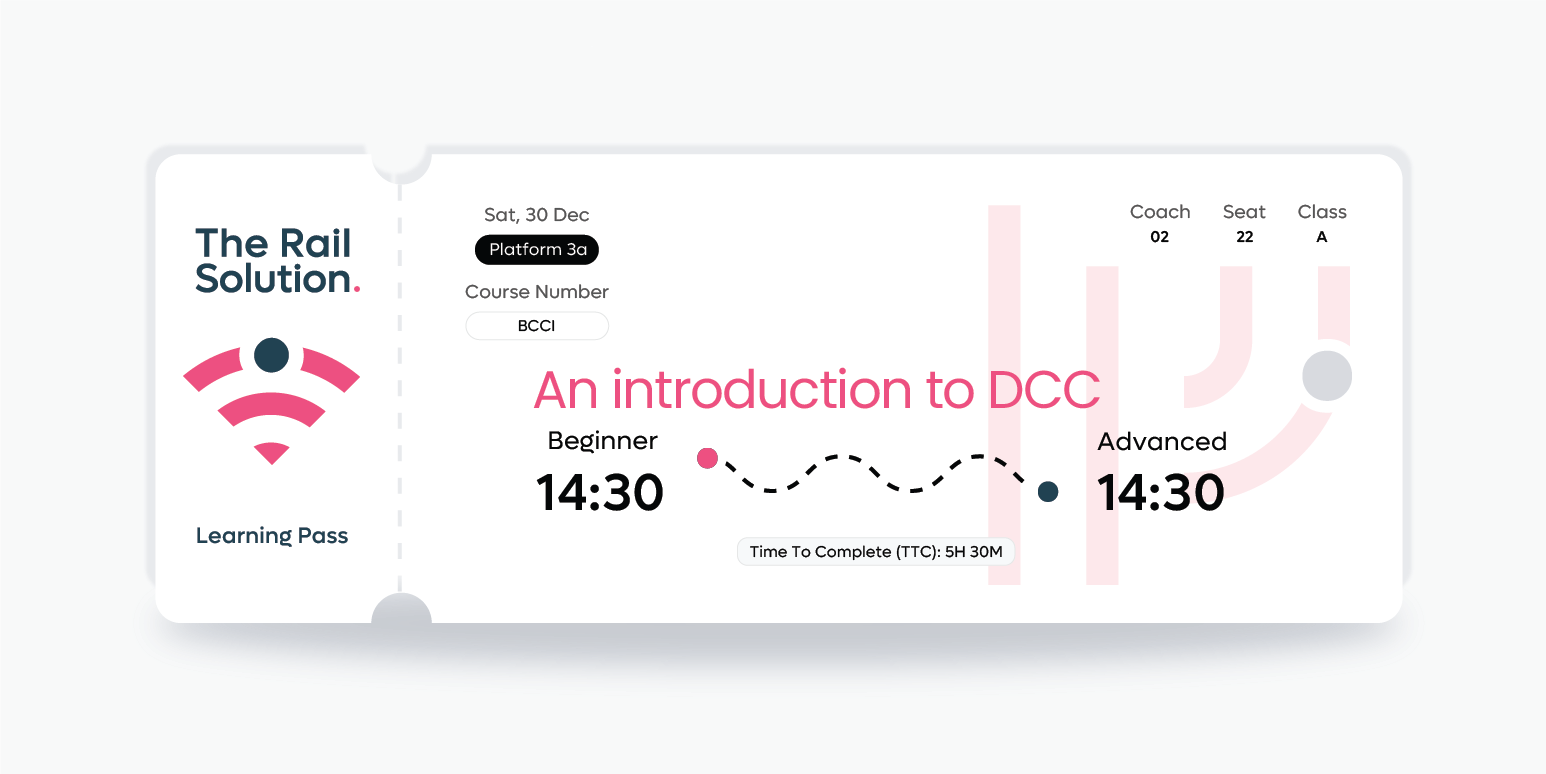
 This course offers a comprehensive introduction to Digital Command Control (DCC) for both newcomers to model railways and those considering a transition from traditional layouts. Participants will learn the essential components of DCC, including operation, wiring, and setup. Enabling them to manage multiple locomotives with ease, utilising either a throttle or smartphone.
This course offers a comprehensive introduction to Digital Command Control (DCC) for both newcomers to model railways and those considering a transition from traditional layouts. Participants will learn the essential components of DCC, including operation, wiring, and setup. Enabling them to manage multiple locomotives with ease, utilising either a throttle or smartphone.
The curriculum covers not only operational techniques but also the creation of realistic railway scenarios through programming decoders, customising locomotive functions, and integrating sound and lighting effects.
By the end of the course, attendees will possess the foundational skills necessary to enhance their model railway experience and impress peers at club meetings. Each section concludes with multiple-choice questions to reinforce understanding, promoting a structured learning journey that builds confidence and skills progressively.
Cost: £55.00 |
|
|
| Allow: Course: 4 Hrs 30 Min. Quizes: 0 Hrs 90 Min. |

 Choosing the Right DCC System – Unlock the Full Potential of Your Model Railway!
Choosing the Right DCC System – Unlock the Full Potential of Your Model Railway!
Are you looking to upgrade your model railway with Digital Command Control (DCC) but unsure where to start? This course is designed to take the guesswork out of selecting the perfect DCC system for your needs.
Whether you're a beginner or an experienced hobbyist, you'll learn how to compare different systems, understand key features like power management, wireless control, and decoder compatibility, and make an informed decision based on your layout size, budget, and future expansion plans.
With clear explanations, expert guidance, practical examples and multiple choice quizzes, this course will give you the confidence to choose a system that enhances your railway experience.
Enroll today and take the first step toward seamless, advanced train control!
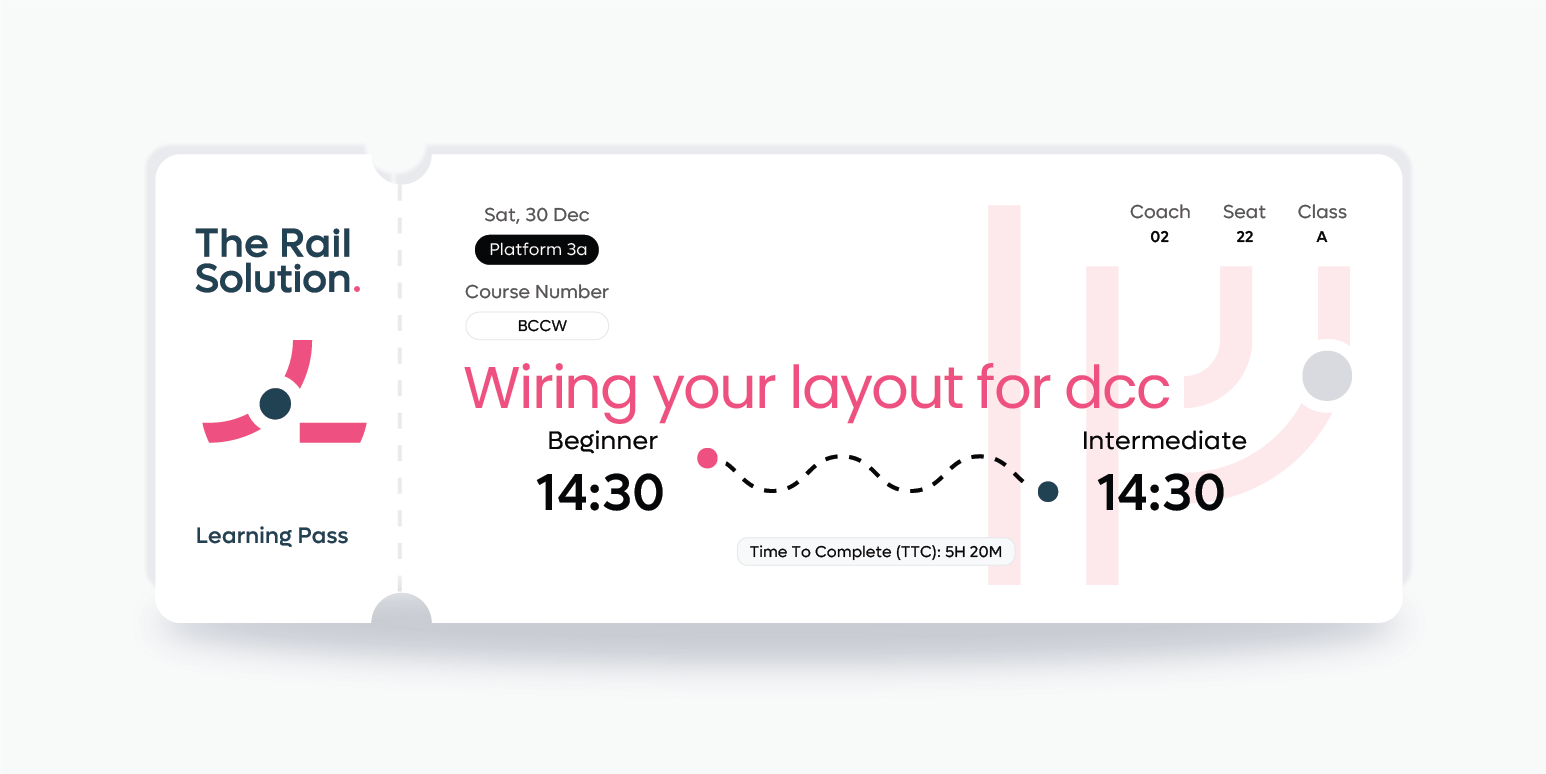
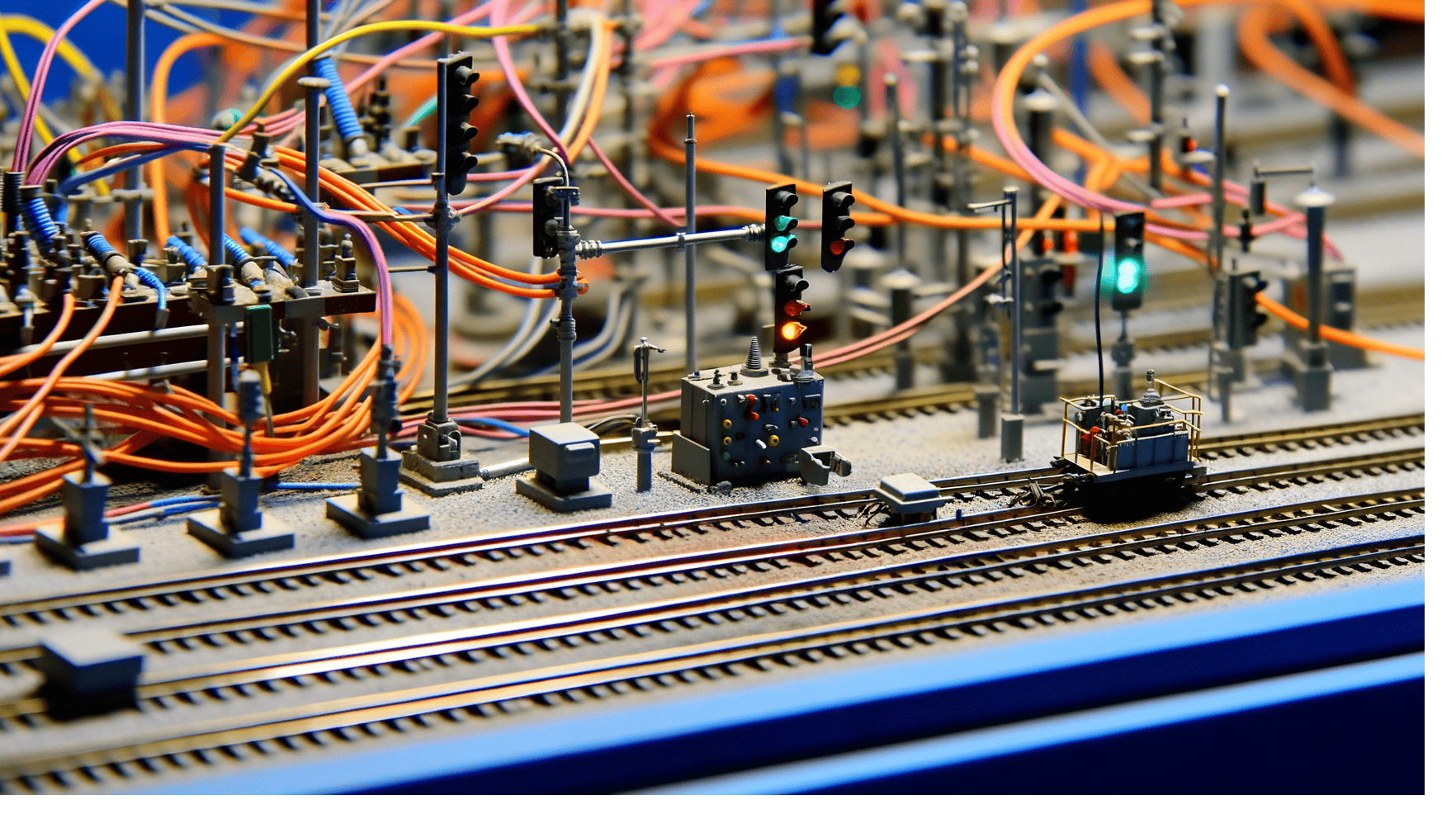 This practical course focuses on the often-overlooked art of cabling within layout designs. Participants will gain essential skills for safely and effectively wiring various components, including understanding electrical buses, identifying different wire types, and wiring turnouts.
This practical course focuses on the often-overlooked art of cabling within layout designs. Participants will gain essential skills for safely and effectively wiring various components, including understanding electrical buses, identifying different wire types, and wiring turnouts.
The course covers concepts such as reverse and hidden loops, emphasising not only the methods but also the rationale behind them and exploring alternatives.
Designed for beginners, but useful for those with more experience, the course provides a structured approach to demystifying electrical layout work, ensuring clarity and confidence in navigating wiring challenges. Each section concludes with multiple-choice questions for self-assessment, reinforcing understanding while progressing through a comprehensive educational journey. Through this course, complex topics have been simplified, allowing learners to apply practical knowledge with ease.
With this structured approach, and step-by-step explanations with ample examples, learners are equipped with the knowledge to effectively operate and programme their layouts. By utilising multiple-choice questions, participants can reinforce their understanding in a self-paced environment.
Cost: £55.00 |
|
|
| Allow: Course: 5 Hrs 30 Min. Quizes: 1 Hrs 10 Min. |
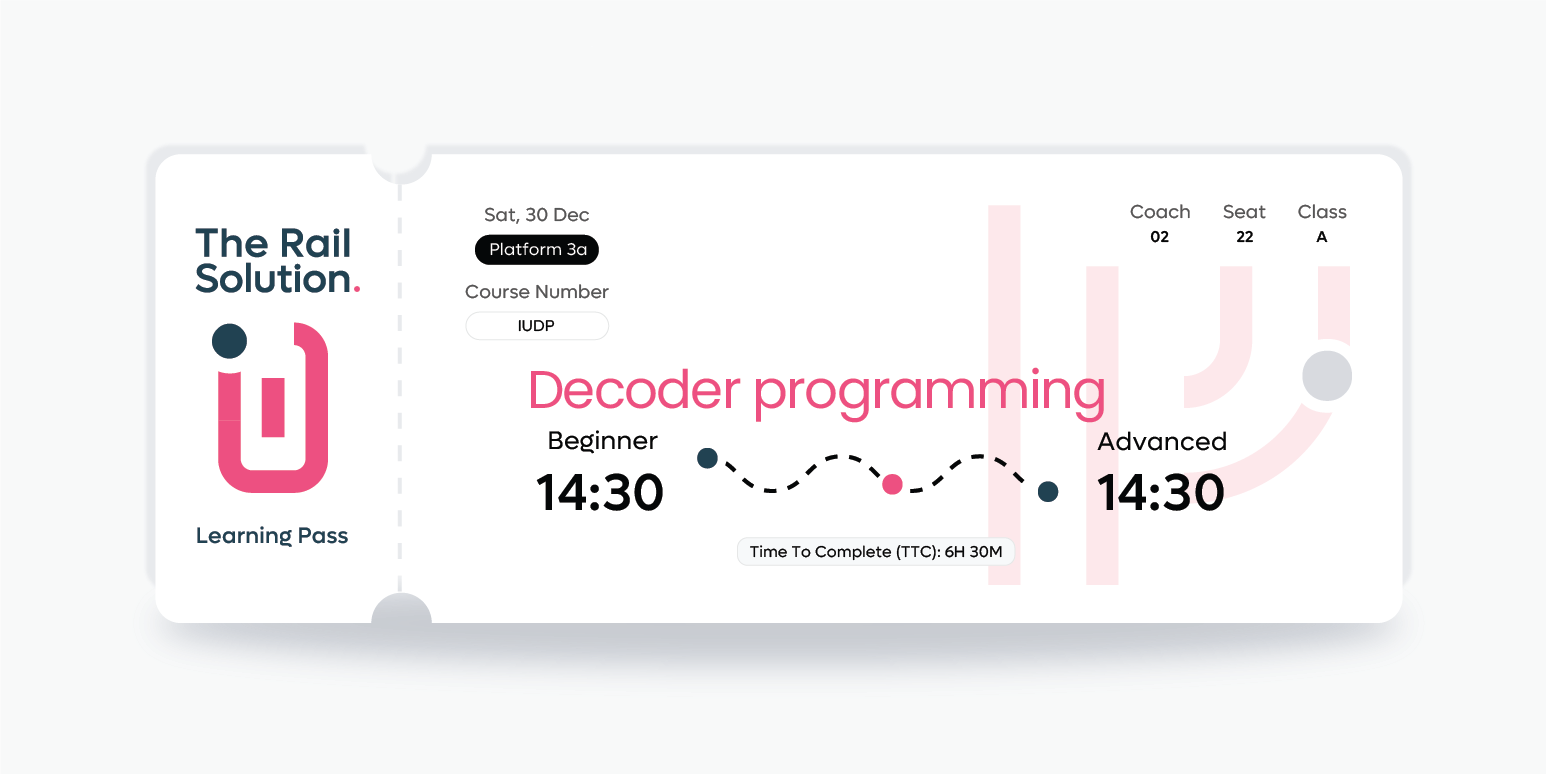
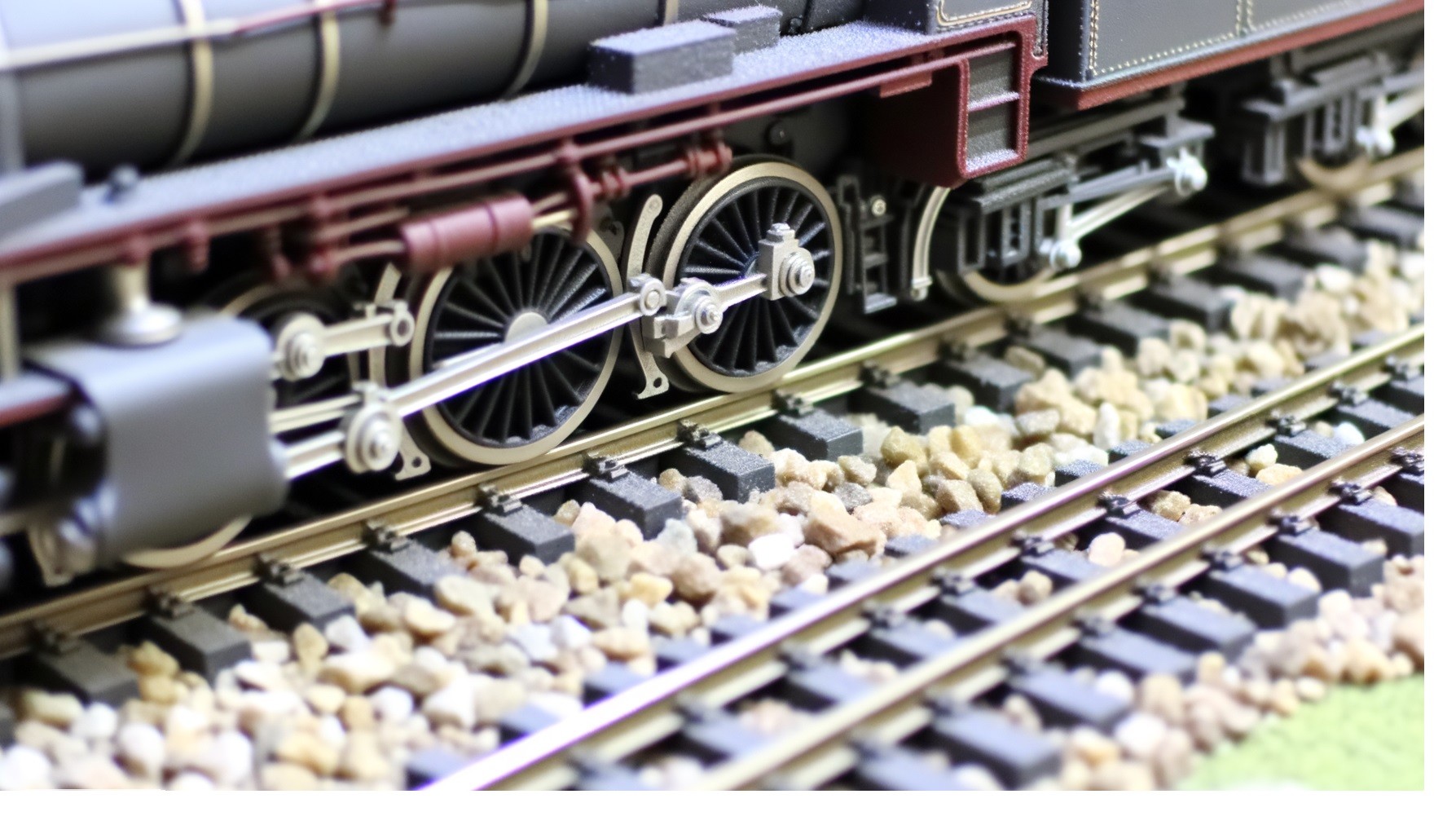 In this course on Digital Command Control (DCC), participants will gain a comprehensive understanding of decoder setup, including essential fundamentals such as binary concepts, function mapping, compound and extended Configuration Variables (CVs), such as CV 29.
In this course on Digital Command Control (DCC), participants will gain a comprehensive understanding of decoder setup, including essential fundamentals such as binary concepts, function mapping, compound and extended Configuration Variables (CVs), such as CV 29.
The curriculum also covers a brief overview of the application of RailCom® as well as the use of sound decoders. With a structured approach, the course offers step-by-step explanations and ample examples, equipping learners with the knowledge to effectively operate and program their layouts. By utilising multiple-choice questions at the end of each section, participants can reinforce their understanding in a self-paced environment.
Designed for both beginners and experienced users. With a structured approach, and step-by-step explanations containing ample examples, ensures learners are equipped with the knowledge to effectively operate and program their layouts. By utilising multiple-choice questions, participants can reinforce their understanding.
Cost: £65.00 |
|
|
| Allow: Course: 8 Hrs 40 Min. Quizes: 1 Hrs 30 Min. |
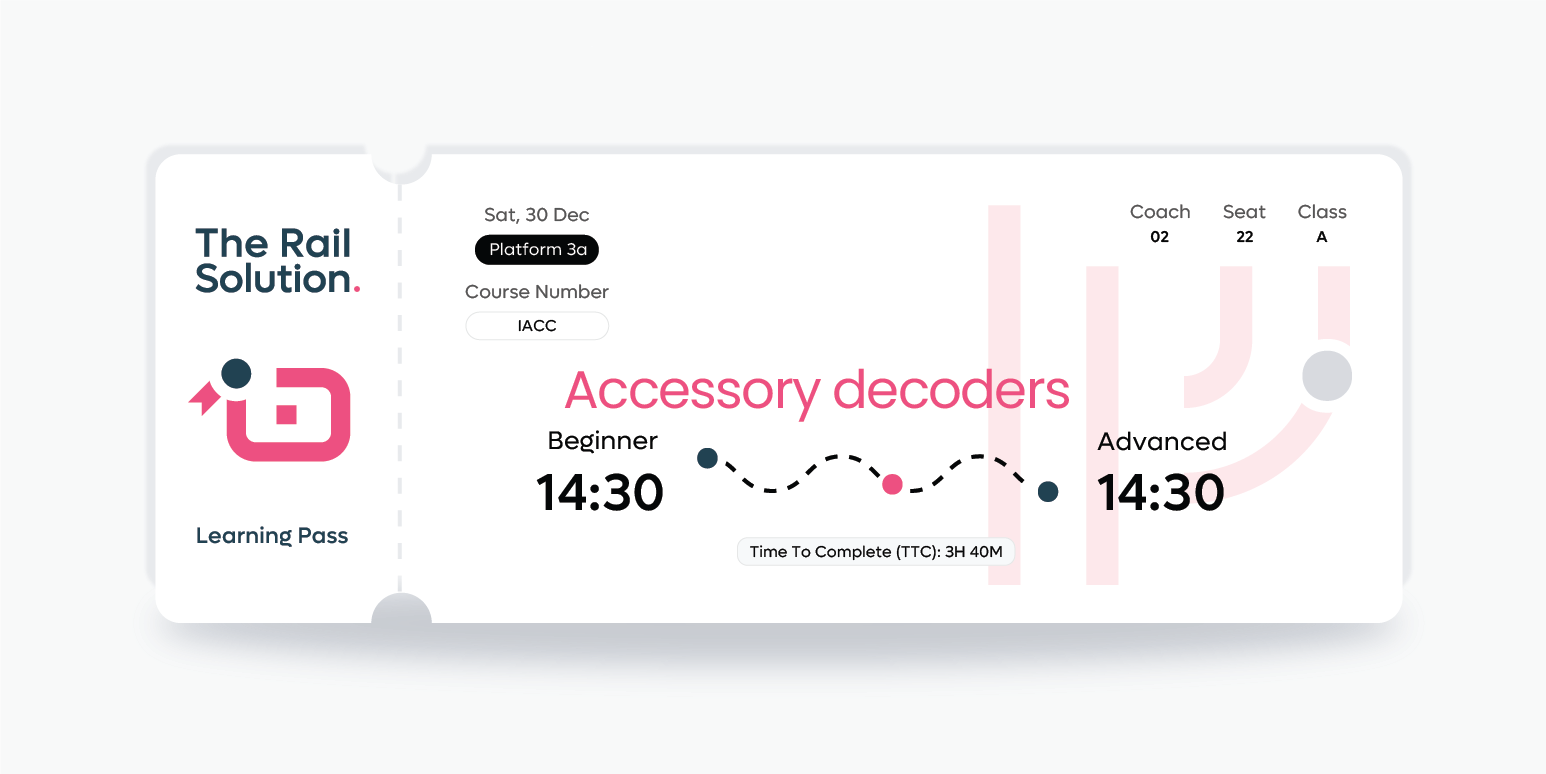
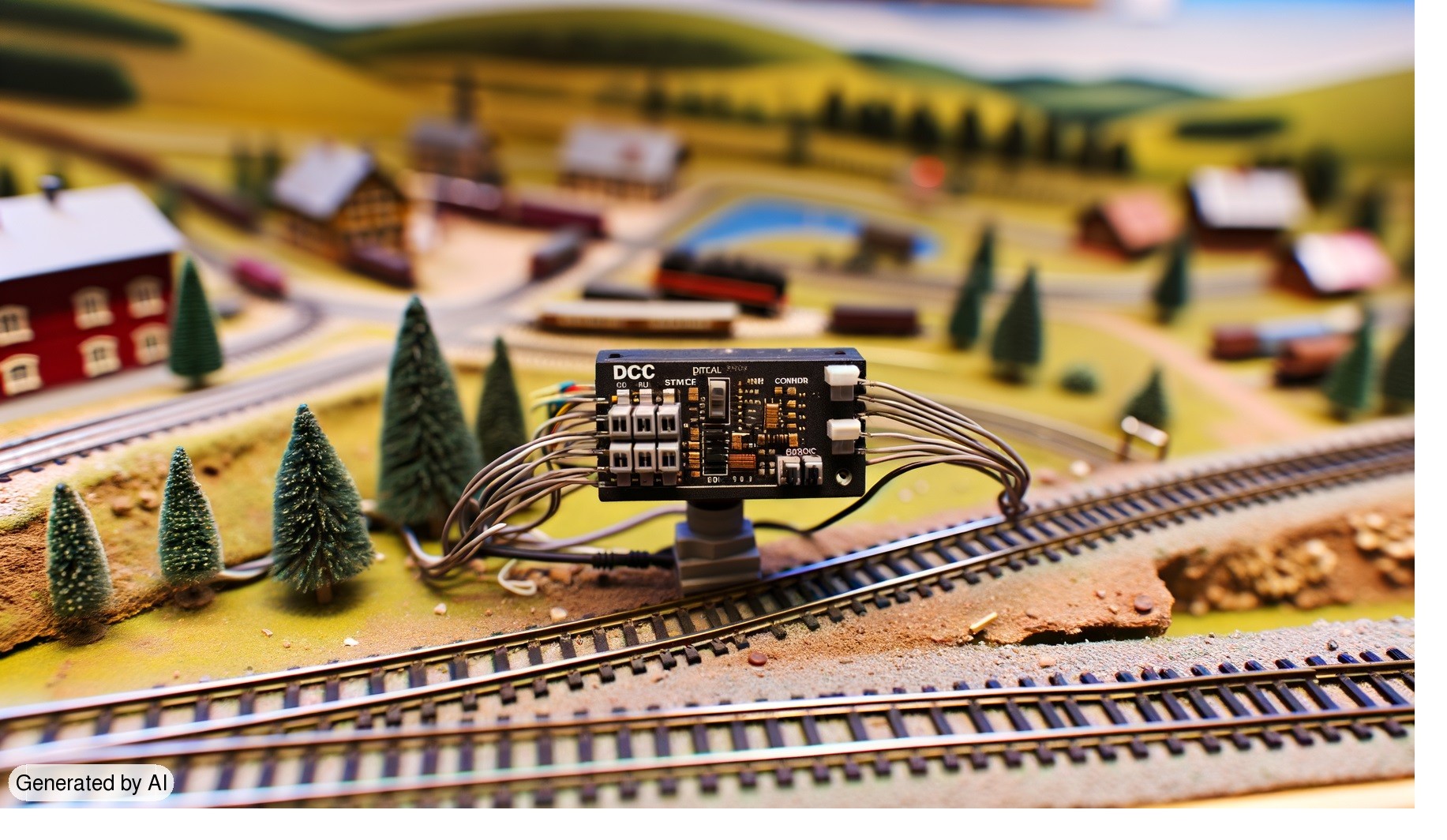 This course is designed to enhance your layout through the use of decoders for accessory and track control, enabling programmable and dynamic operations.
This course is designed to enhance your layout through the use of decoders for accessory and track control, enabling programmable and dynamic operations.
Participants will explore accessory decoders, gaining insight into their role in managing and triggering various devices. The curriculum covers wiring, programming, and troubleshooting, ultimately creating interactive environments from static displays. Real-world applications will be demonstrated, showcasing how decoders can animate model railways, produce intricate light displays, and improve automation systems.
Each section includes multiple-choice questions for self-assessment, and the course is structured to guide learners from basic concepts to advanced applications seamlessly. Feedback indicates high satisfaction among students, highlighting the clear instruction and practical exercises that aid in understanding these transformative components for enhancing projects.
Cost: £45.00 |
|
|
| Allow: Course: 3 Hrs 00 Min. Quizes: 1 Hrs 10 Min. |
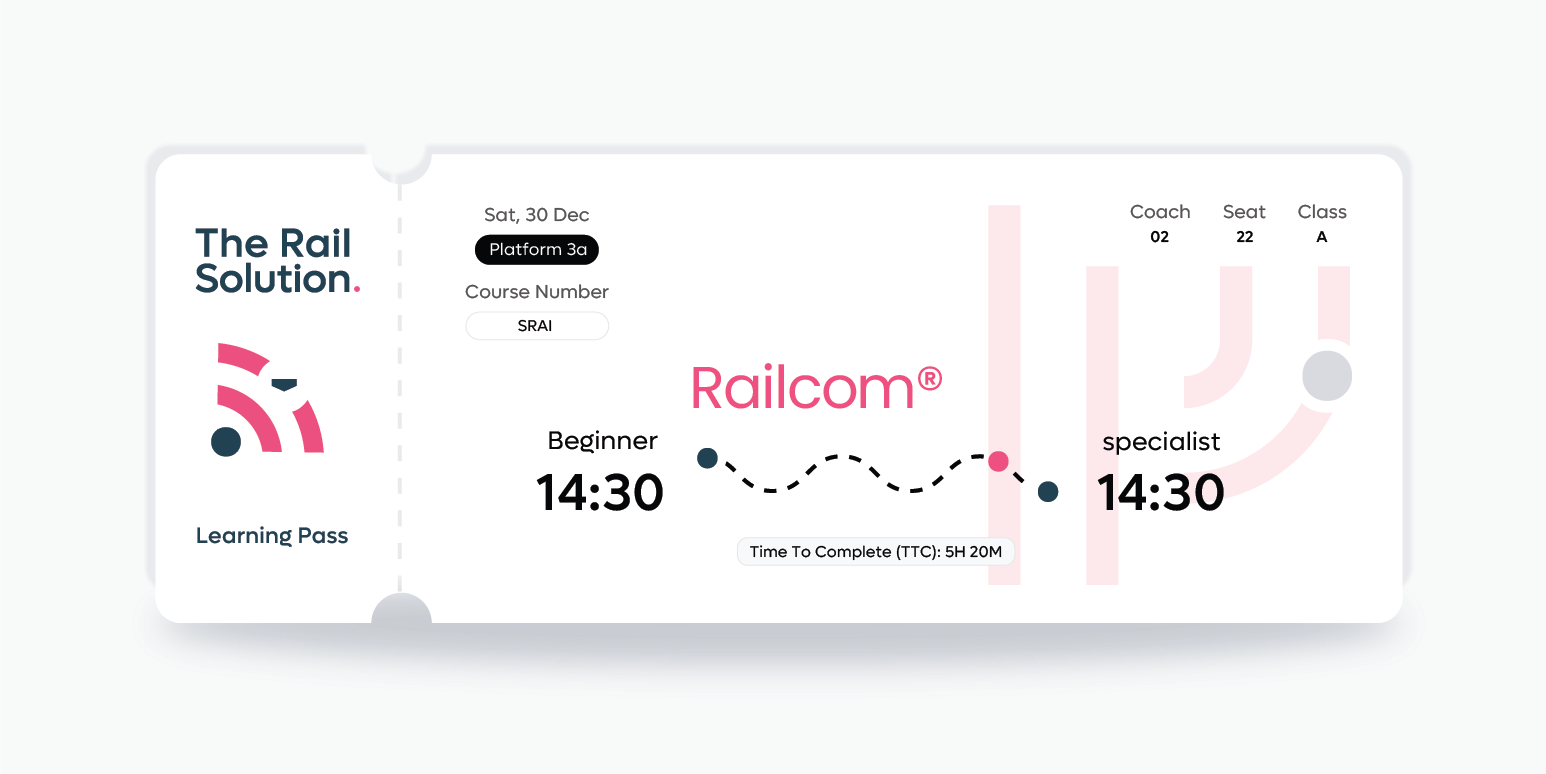
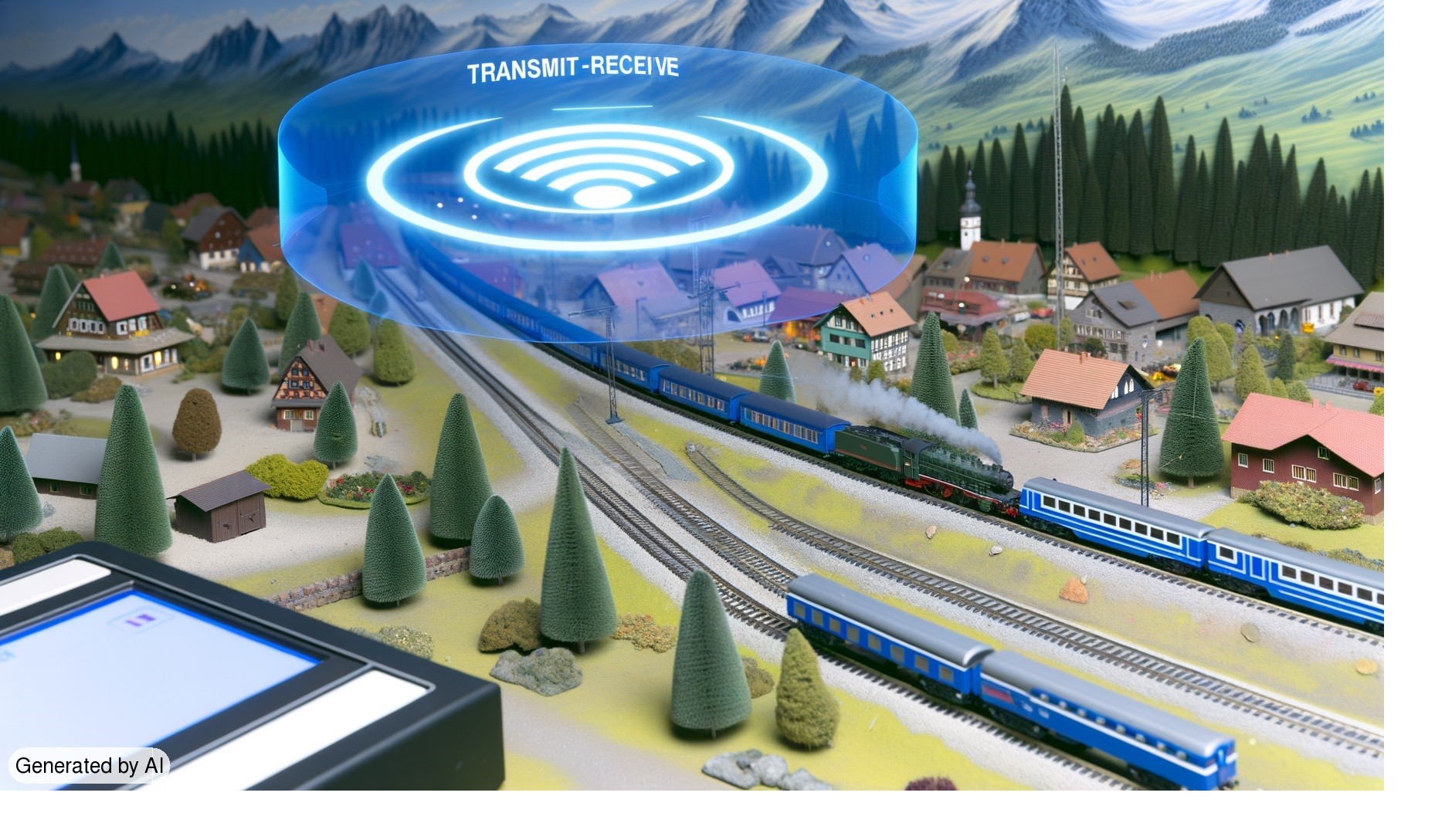 In this short course, we'll show you more about RailCom® and introduce you to the benefits it brings to model railways.
In this short course, we'll show you more about RailCom® and introduce you to the benefits it brings to model railways.
RailCom® is a communication protocol for model railway systems, supported in compatible decoders. It allows two-way communication between the digital command station and decoders in locomotives and accessories. It offers numerous possibilities for model railway enthusiasts, including real-time feedback on the status and performance of locomotives, allowing operators to monitor speed, voltage, current draw, and decoder temperature. We will also explain automation using RailCom® and how advanced software can use RailCom® data. We include detail on the protocol and data messaging involved, offering a glimpse beyond simple operation. A lesson on binary principles is included for those needing revision.
With this structured approach, and step-by-step explanations with ample examples, learners are equipped with the knowledge of this advanced subject. Multiple-choice questions are used as a revision aid, for participants to reinforce their understanding of this protocol, all within this self-paced environment.
Cost: £35.00 |
|
|
| Allow: Course: 2 Hrs 20 Min. Quizes: 1 Hrs 00 Min. |
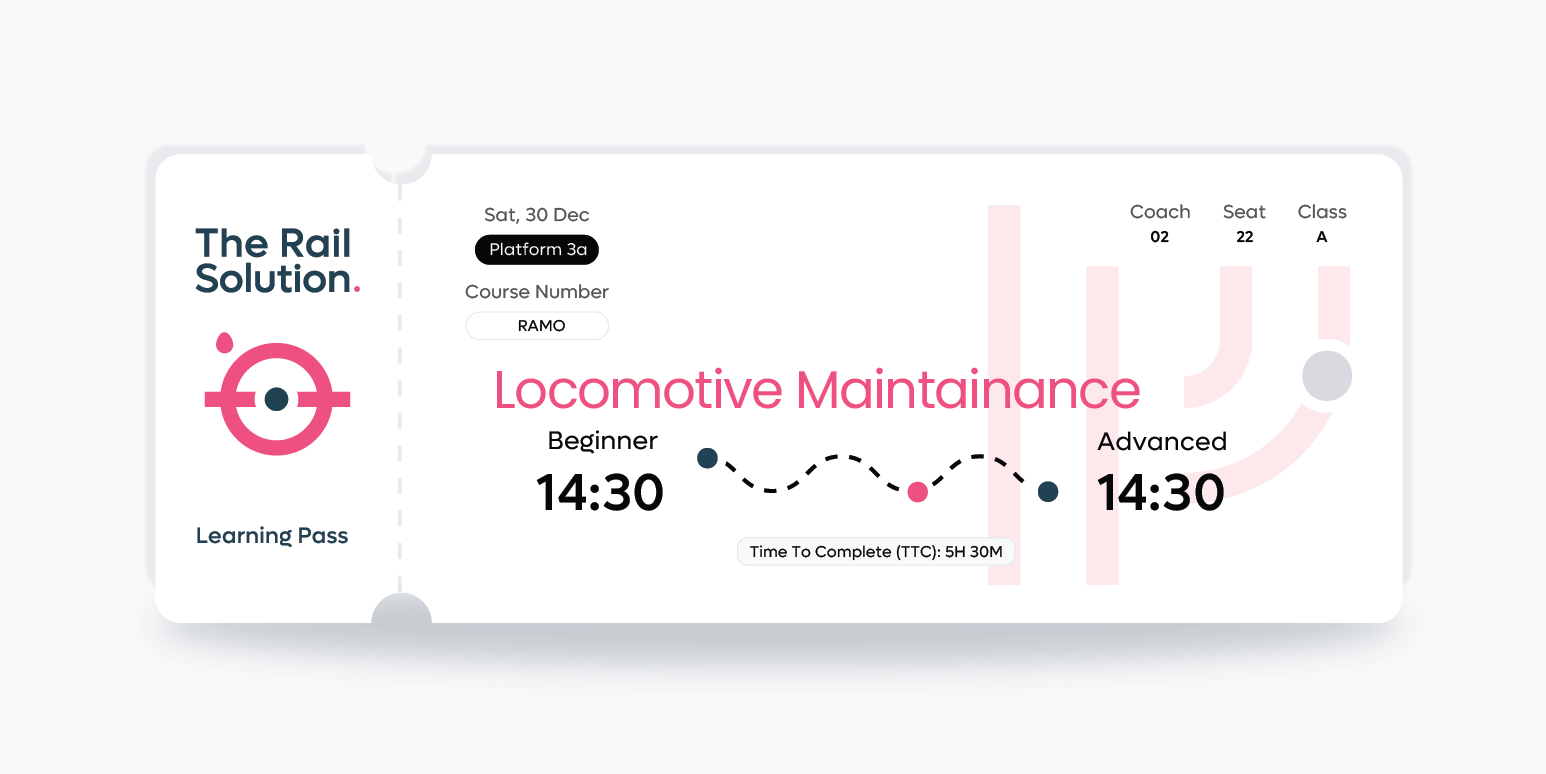
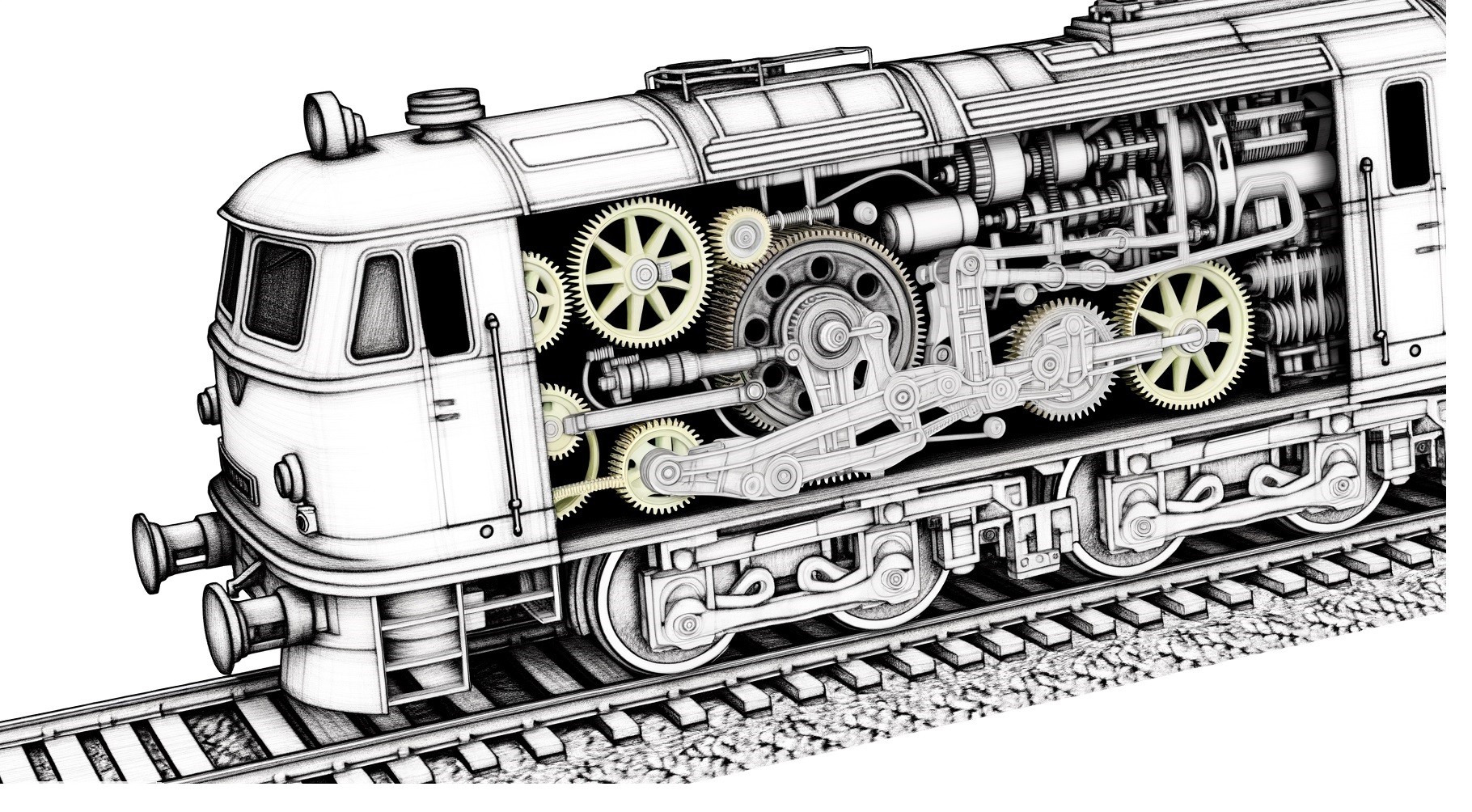 This course focuses on the importance of actively maintaining your model, rather than addressing repairs as they arise. Participants will learn about techniques for routine upkeep, including cleaning, lubrication, and inspections, all aimed at preventing issues before they occur.
This course focuses on the importance of actively maintaining your model, rather than addressing repairs as they arise. Participants will learn about techniques for routine upkeep, including cleaning, lubrication, and inspections, all aimed at preventing issues before they occur.
By gaining the skills offered, individuals will become practiced and confident in working on models, ultimately minimising downtime and extending the working life. Designed with all levels of knowledge in mind, the course comprises organised modules that each provide a solid foundation in maintenance practices, supplemented by practical tips.
By the end of the course, you will not only recognise the significance of regular maintenance but will also possess the confidence and expertise to perform it.
Cost: £55.00 |
About maintenance Contents of the toolkit Choosing screwdrivers Cutters and pliers The soldering iron Service cradles The rolling road Optional tools Routine maintenance Running in and testing Cleaning fluids and oils Cleaning Wheels Pickup types |
Cleaning tips |
| Allow: Course: 5 Hrs 10 Min. Quizes: 1 Hrs 15 Min. |
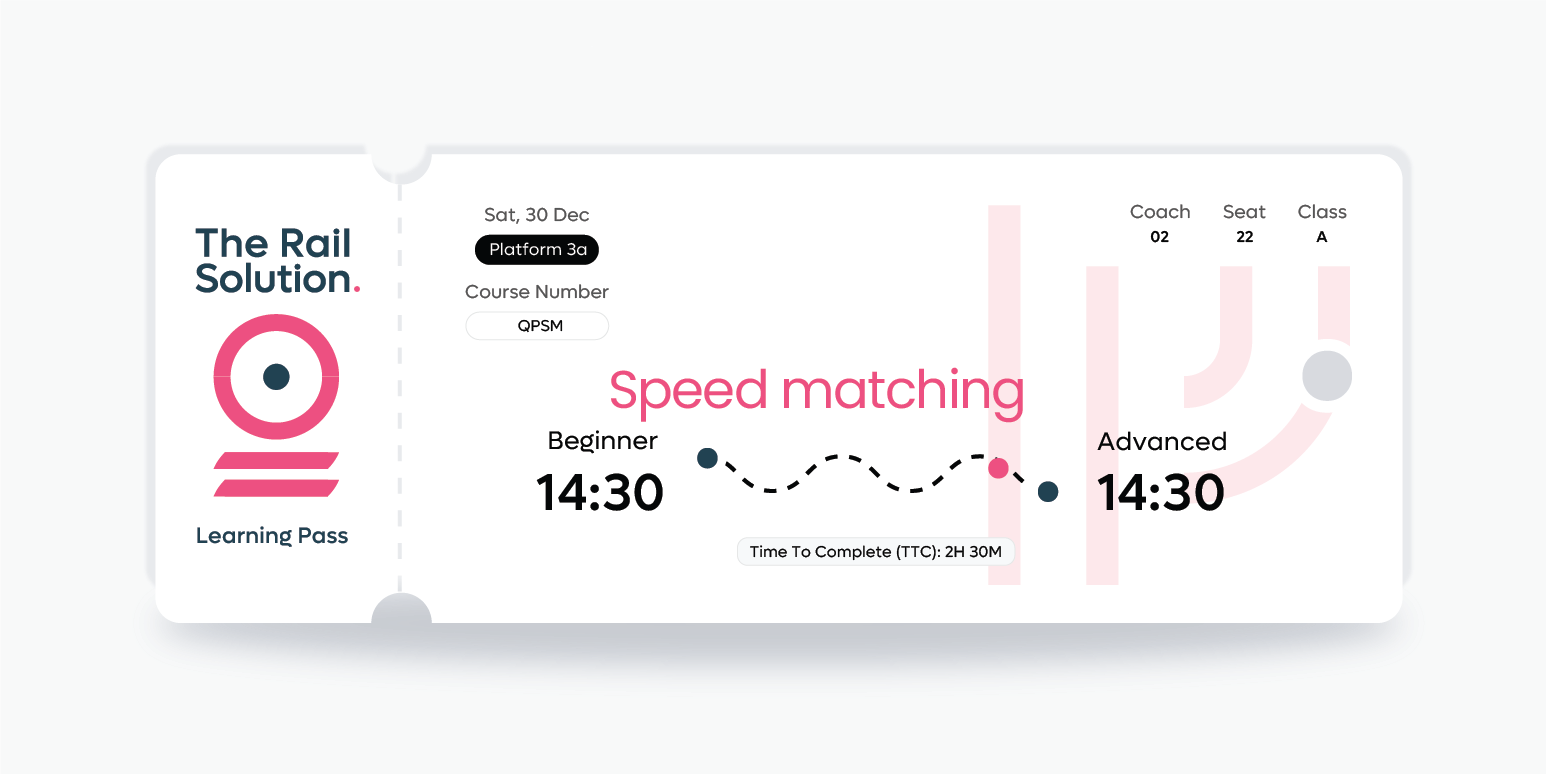
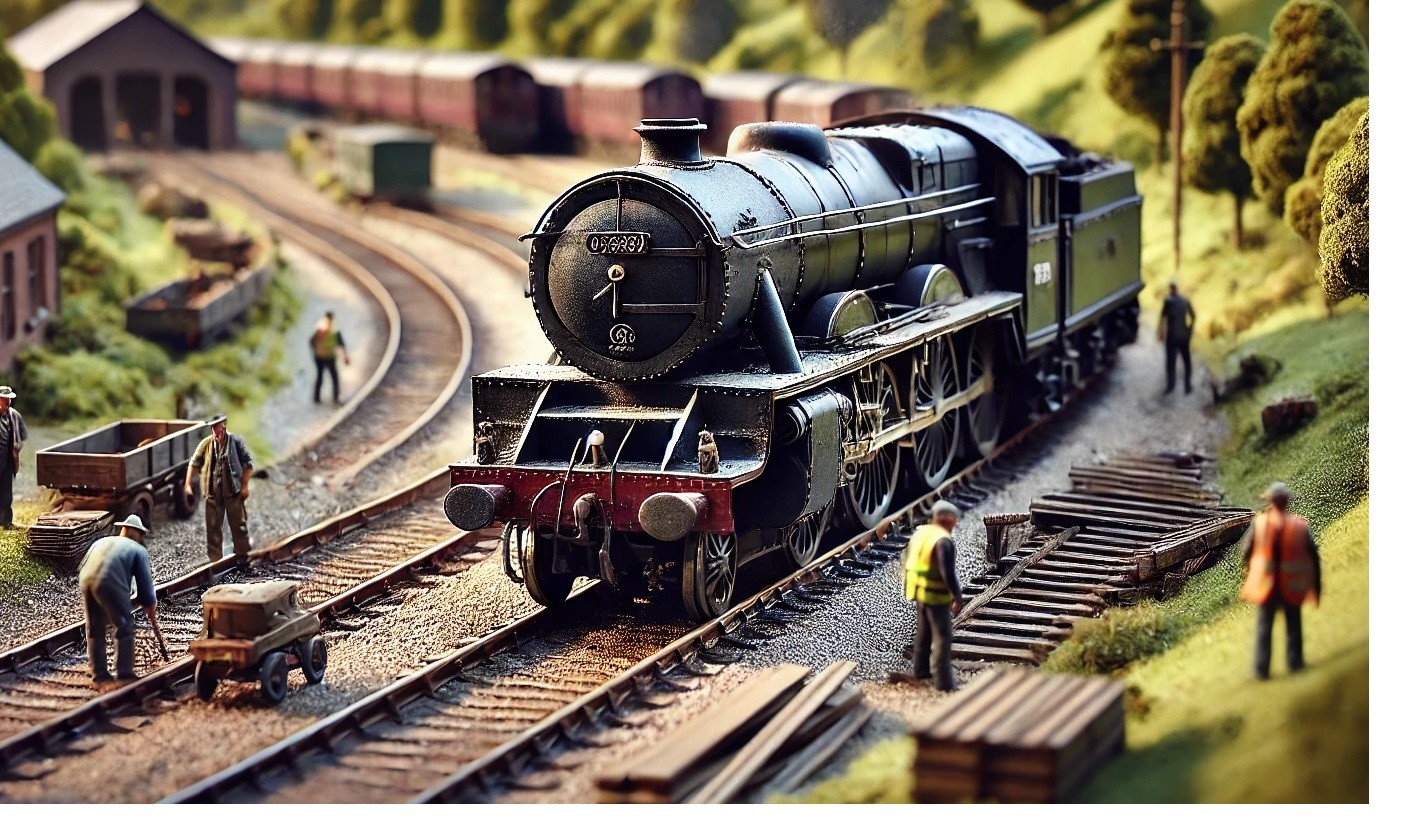 After we received many requests for a specialist speed matching course, we've decided to develop one! The course is designed to cover the fundamental principles of speed matching, detailing its objectives and practical applications.
After we received many requests for a specialist speed matching course, we've decided to develop one! The course is designed to cover the fundamental principles of speed matching, detailing its objectives and practical applications.
Participants will learn how to utilise CVs for both acceleration and deceleration, as well as the various speed tables available. The course will also delve into BEMF (Back Electromotive Force) and mechanical stiction (the effort needed to start a model moving), providing comprehensive insights into these key concepts.
Furthermore, we will explore examples of manufacturers' automated speed settings. Learners will gain understanding of the nuances and complexities involved in speed matching.
Using this structured approach, as well as step-by-step explanations with ample examples, learners are equipped with the knowledge to effectively operate and programme their layouts. By utilising multiple-choice questions, participants can reinforce their understanding in a self-paced environment.
Cost: £35.00 |
|
|
| Allow: Course: 1 Hrs 20 Min. Quizes: 0 Hrs 40 Min. |
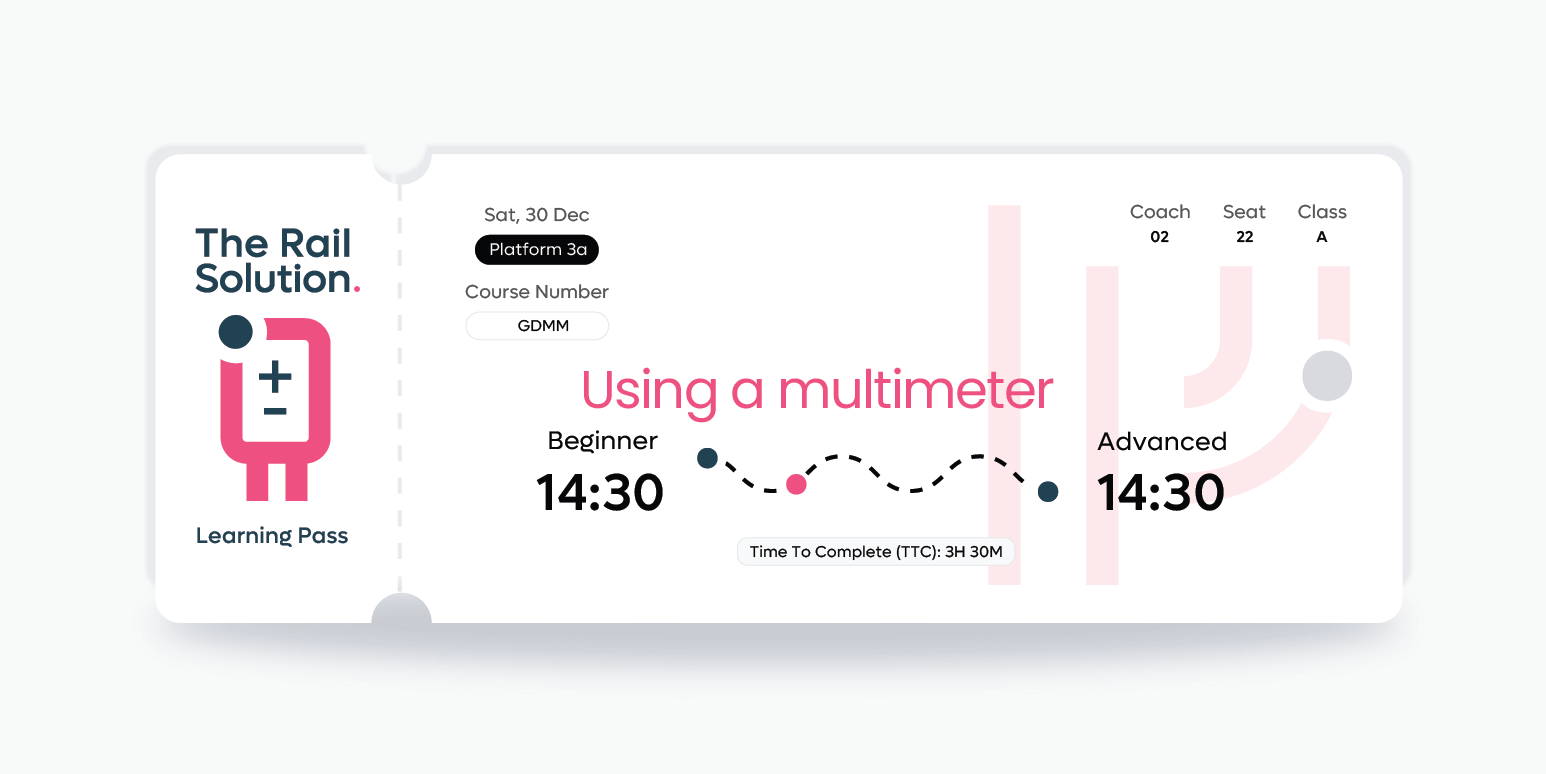
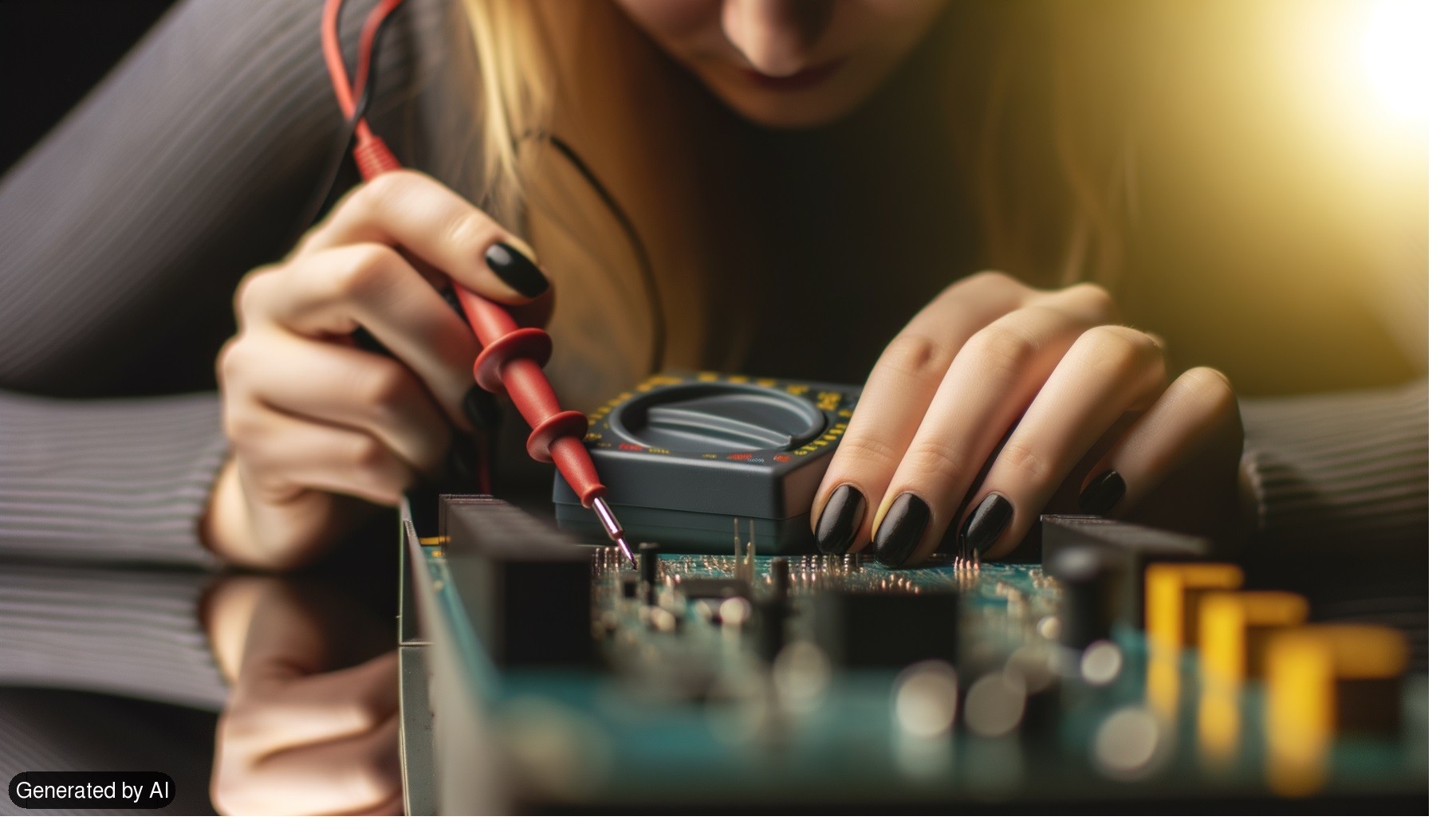 We equip beginners with the essential skills for measuring voltage, current, and resistance and discuss using both digital and analogue multimeters.
We equip beginners with the essential skills for measuring voltage, current, and resistance and discuss using both digital and analogue multimeters.
During the course, participants will gain a solid understanding of electrical basics and safety protocols, progressing through hands-on lessons, that cover practical applications such as troubleshooting household appliances and automotive electronics.
The curriculum emphasises clarity and comprehension, breaking down complex concepts into manageable modules.
By completion, learners will not only become adept at using the multimeter but also gain the ability to approach electronic problems with confidence, enhancing their layout diagnostic and project skills.
Cost: £35.00 |
|
|
| Allow: Course: 3 Hrs 20 Min. Quizes: 1 Hrs 10 Min. |
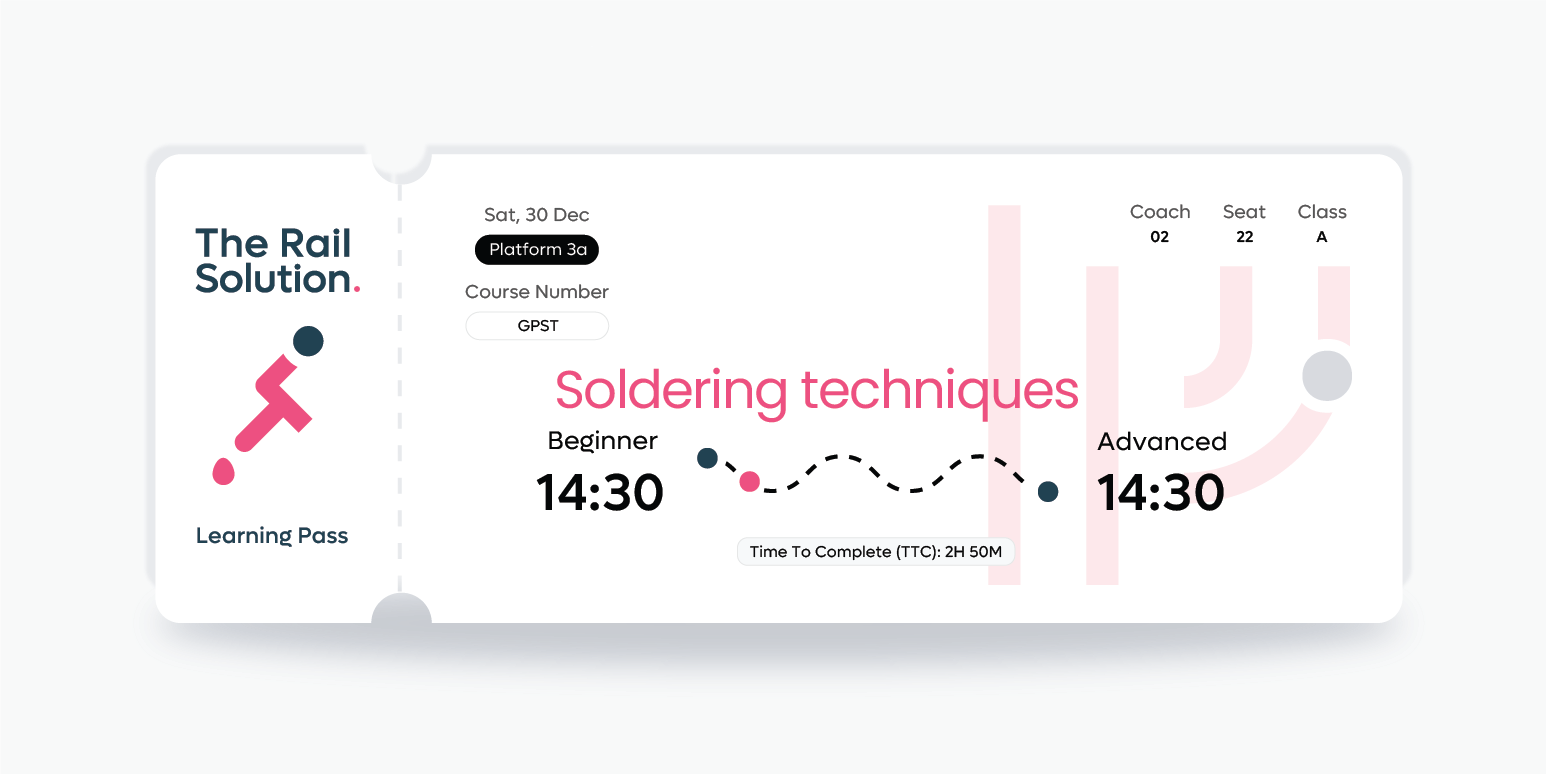
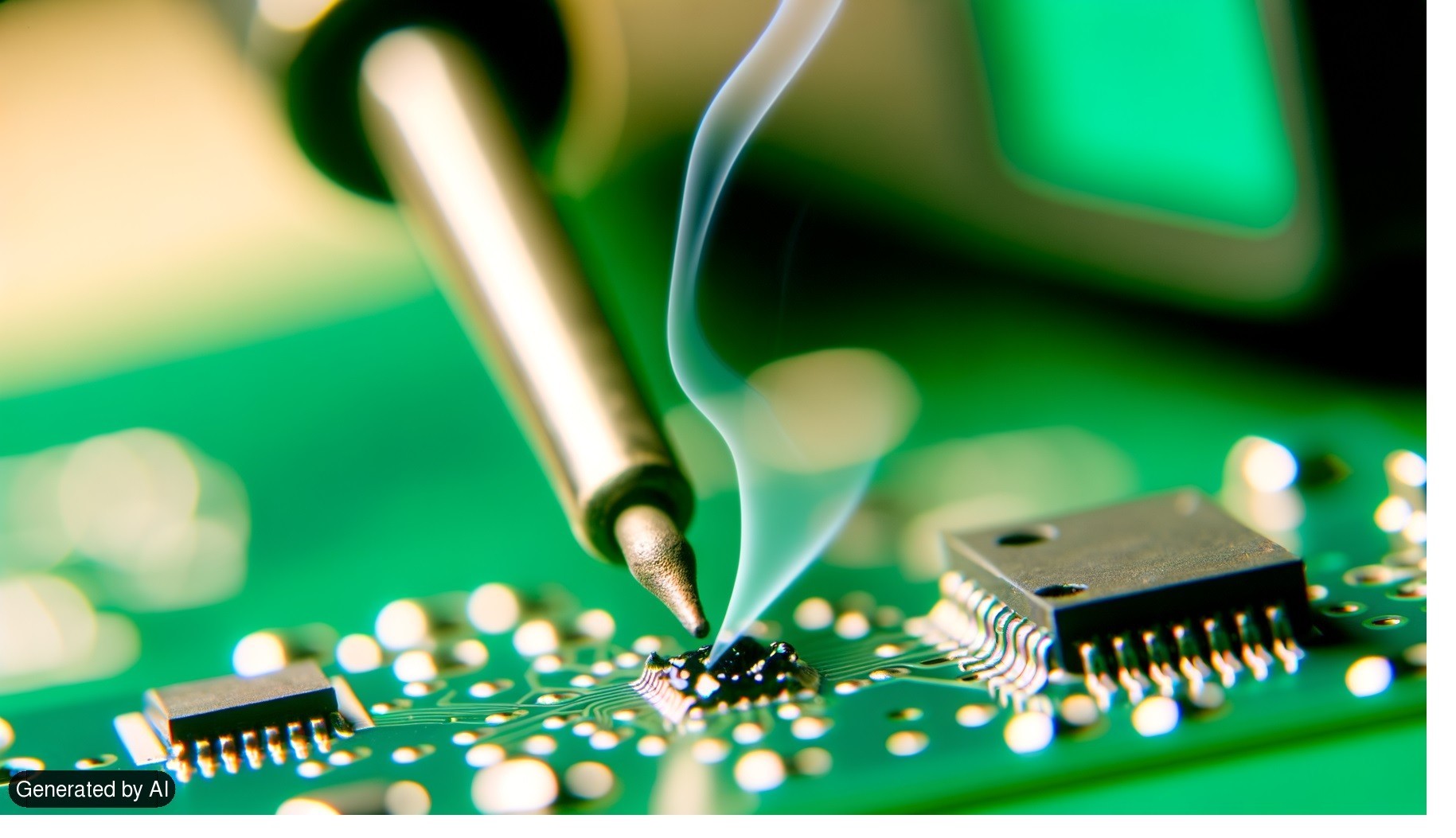 This comprehensive soldering course is designed for individuals ranging from beginners to experienced hobbyists looking to enhance their skills in soldering components, track and wires.
This comprehensive soldering course is designed for individuals ranging from beginners to experienced hobbyists looking to enhance their skills in soldering components, track and wires.
Participants will gain confidence in executing reliable and durable connections through structured lessons that start with fundamental techniques and progress to more advanced applications. The course is user-friendly, with content presented in manageable segments, ensuring accessibility for all learners.
With guidance throughout, attendees will be well-prepared to undertake various soldering projects and achieve professional-level results.
Cost: £35.00 |
|
|
| Allow: Course: 2 Hrs 20 Min. Quizes: 1 Hrs 10 Min. |
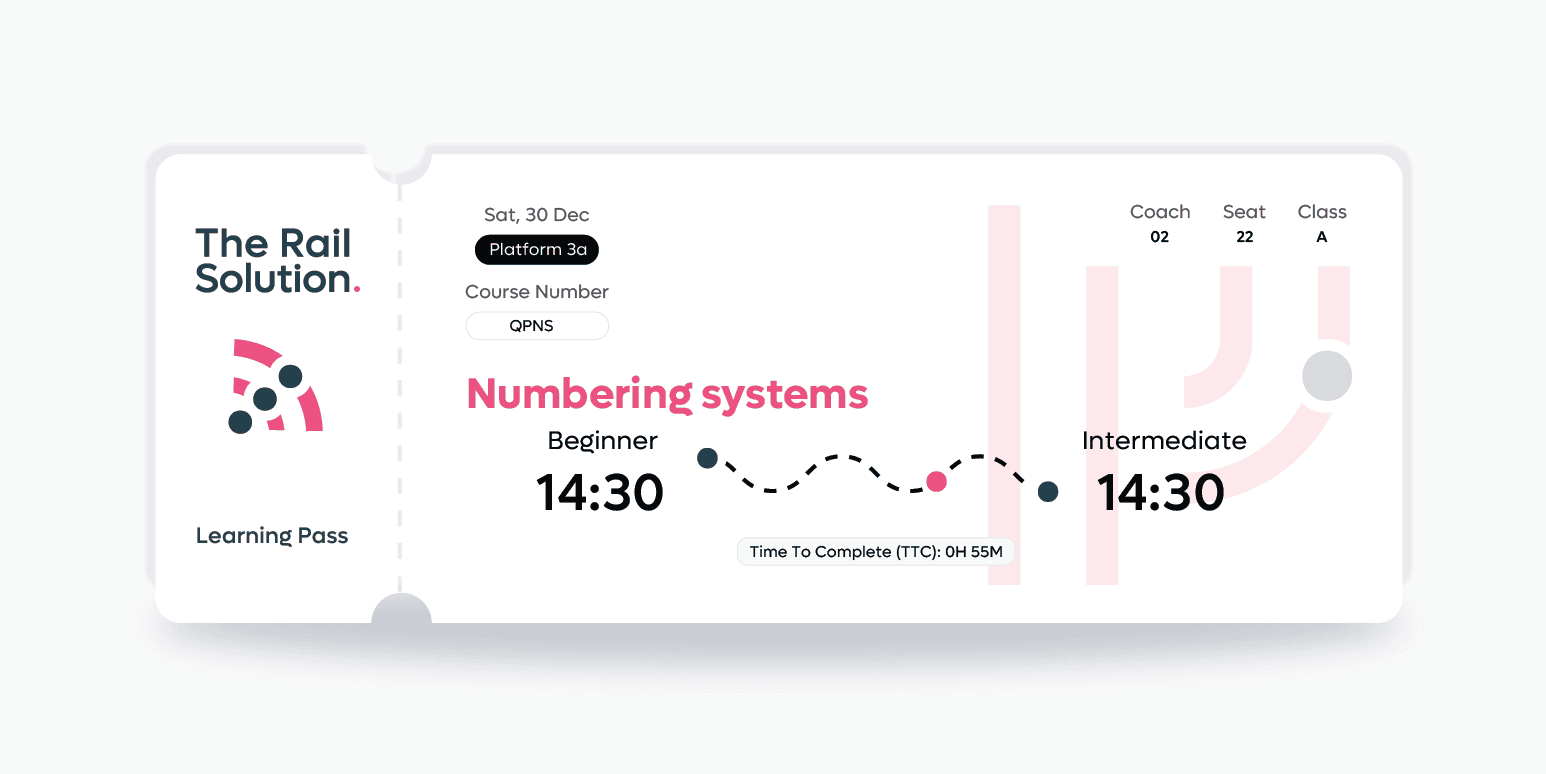
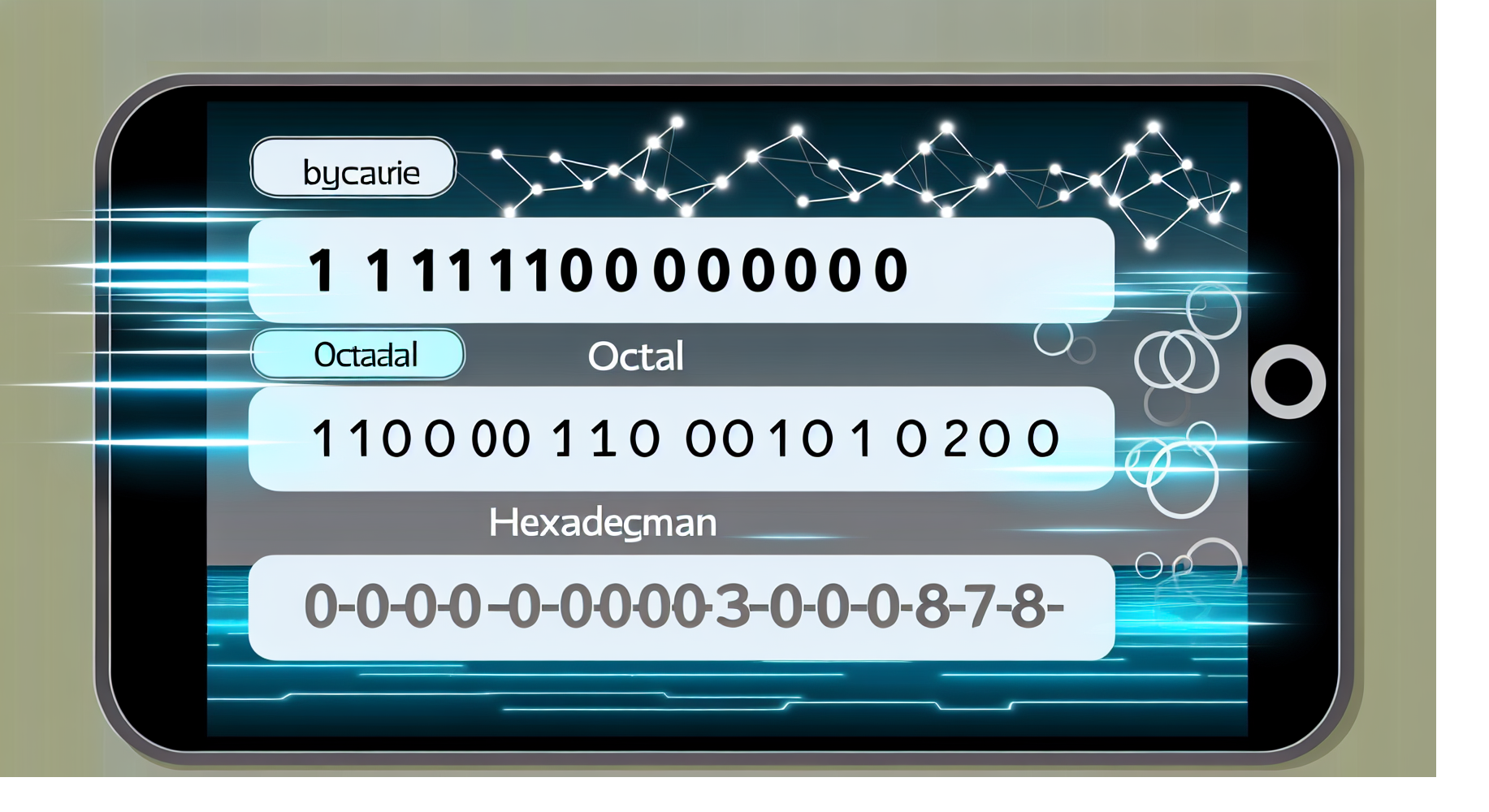 Binary is a fundamental part of understanding compound CVs, we will show how base 2, the binary numbering system works and also explore and learn other common number bases including octal (base 8), and hexadecimal (base 16) and their relationship to decimal. Binary is a fundamental part of understanding compound CVs, we will show how base 2, the binary numbering system works and also explore and learn other common number bases including octal (base 8), and hexadecimal (base 16) and their relationship to decimal.
Binary is a fundamental part of understanding compound CVs, we will show how base 2, the binary numbering system works and also explore and learn other common number bases including octal (base 8), and hexadecimal (base 16) and their relationship to decimal. Binary is a fundamental part of understanding compound CVs, we will show how base 2, the binary numbering system works and also explore and learn other common number bases including octal (base 8), and hexadecimal (base 16) and their relationship to decimal.
By the end of this short course, you will be able to:
- Convert between bases
- Understand each base
- Recognise the integers of each type
Cost: £10.00 |
|
|
| Allow: Course: 0 Hrs 55 Min. Quizes: 0 Hrs 40 Min. |

Adhesives come in various types, each suited for specific applications and uses. The main categories of adhesive include natural, synthetic, and pressure-sensitive adhesives, each offering distinct properties and benefits.
Application methods vary, ranging from traditional techniques such as brushing and rolling to modern approaches like spraying and dispensing systems.
Understanding the appropriate adhesive type along with the optimal application method is essential for achieving effective bonding in diverse settings, from industrial to domestic use.
Cost: £ FREE |
||
| Allow: Course: 10 Min. |

In this, our initial information sheet, the various types of connectors, their typical applications, their compatibility with model railways, and a short section listing troubleshooting techniques are outlined.
Cost: £ FREE |
||
| Allow: Course: 10 Min. |

Lubrication is essential to ensuring that locomotives and rolling stock run smoothly and reliably. With numerous moving parts in miniature mechanisms, lubricant reduces wear, and enhances overall performance. Not all lubricants are suitable for use on models. Understanding the different types of lubricant available, their intended uses, and their potential effects on various materials is crucial for preserving both the functionality and appearance of your models.
Cost: FREE |
||
| Allow: Course: 10 Min. |

Without track, there would be no model railways. Important, both functionally and visually, but often it is overlooked. Understanding the materials used in its construction helps modellers make informed choices for reliability, realism, and ease of maintenance. The rails themselves must provide solid support and good electrical conductivity, while the sleepers contribute to both stability and the layout’s appearance. This guide explores the common materials used for rails and sleepers, along with methods of joining track sections securely.
Cost: FREE |
||
| Allow: Course: 10 Min. |

Carbon brushes are critical components in many 12V DC motors, enabling the transfer of electrical current to the rotating armature. Their composition, type, and condition directly impact motor performance, efficiency, and lifespan. Understanding the different brush materials and their maintenance requirements can help prevent premature wear and costly failures. This information sheet provides an overview of common brush types, their characteristics, and key considerations for care and replacement.
Cost: FREE |
||
| Allow: Course: 10 Min. |

In railway modelling, paint is far more than a cosmetic finish—it is a key element in creating realism, atmosphere, and historical accuracy. From replicating authentic locomotive liveries to weathering buildings and scenery, the correct use of paints and understanding their differences is essential knowledge for both beginners and experienced modellers alike.
Cost: FREE |
||
| Allow: Course: 10 Min. |

Model railway couplings are small mechanisms used to connect rolling stock together, enabling realistic train operation on a miniature scale. Various types exist, including tension lock, Kadee, and three-link couplings, each offering different levels of realism and ease of use. Choosing the right coupling system depends on the modeller’s preference for authenticity, operational reliability, and compatibility with existing stock.
Cost: FREE |
||
| Allow: Course: 10 Min. |

Model railway track gauges define the distance between the rails and directly influence compatibility with locomotives, rolling stock, and scenery. A range of gauges and scales are available, each offering different benefits. Understanding the key differences is essential. This information sheet guide provides a concise guide to the most common gauges, their measurements and associated scales.
Cost: FREE |
||
| Allow: Course: 10 Min. |

